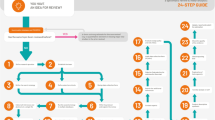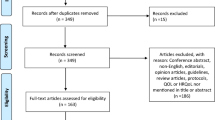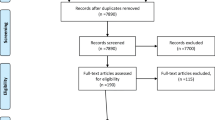Abstract
The traditional contrast between naturalist and normativist disease concepts fails to capture the most salient features of the health concepts debate. By using health concepts as a window on background notions of medical science and ethics, I show how Christopher Boorse (an influential naturalist) and Lennart Nordenfelt (an influential normativist) actually share deep assumptions about the character of medicine. Their disease concepts attempt, in different ways, to shore up the same medical model. For both, health concepts function like demarcation criteria in the philosophy of science: they mark off the jurisdiction of medical science, and protect it from an inappropriate intrusion of socioeconomic factors, which threaten the integrity of modern medicine. These views are challenged by new developments in healthcare such as managed care and total quality review. To frame the health concepts debate in a way that better captures the issues integral to these new developments, I advance a new way of reading the distinction between weak and strong normativists. Strong normativists are skeptical of the demarcation project, think facts and values cannot be disentangled, and hold that socioeconomic conditions unavoidably influence how pathology is understood. The new health concepts debate should be framed as one between weak and strong normativists, and it concerns how we should respond to the current developments in health care.
Similar content being viewed by others
References
Angell M. (1987). Medicine: The Endangered Patient-Centered Ethic. Hastings Center Report 17:12–13
Boorse C. (1975). On the Distinction between Disease and Illness. Philosophy and Public Affairs 5:49–68
Boorse C. (1977). Health as a Theoretical Concept. Philosophy of Science 44:542–573
Boorse C. (1997). A Rebuttal on Health. In: Humber J., Almeder R. (eds) What is Disease. Humana Press, NJ, pp. 1–134
Brett A., McCullough L.B. (1986). When Patients Request Specific Interventions: Defining the Limits of the Physician’s Obligation. New England Journal of Medicine 315:1347–1351
Canguilhem, G.: 1991[1966], The Normal and the Pathological. New York: Zone Books
Cassell E. (1991). The Nature of Suffering. Oxford University Press, Oxford
Corrigan, J., L.T. Kohn and M.S. Donaldson (eds.): 2000, To Err is Human: Building a Safer Health System. Washington, DC: National Academy Press
Cribb A. (2001). Reconfiguring Professional Ethics. HEC Forum 13:111–124
Eddy D. (1996). Clinical Decision Making: From Theory to Practice. Jones and Bartlett Publishers, Boston
Engelhardt H.T. (1996). Foundations of Bioethics, 2nd edn. Oxford University Press, Oxford
Fleck, L.: 1979[1935], Genesis and Development of a Scientific Fact. Chicago: University of Chicago Press
Flexner, A.: 1910, Medical Education in the United States and Canada. A Report to the Carnegie Foundation for the Advancement of Teaching. The Carnegie Foundation
Foucault, M.: 1975, The Birth of the Clinic: An Archeology of Medical Perception, A.M. Sheridan Smith (tr.). New York: Vintage Books
Fulford K.W. (1989). Moral Theory and Medical Practice. Cambridge University Press, Cambridge
Hesslow G. (1993). Do We Need a Concept of Disease? Theoretical Medicine 14:1–14
Khushf G. (1997). Why Bioethics Needs the Philosophy of Medicine: Some Implications of Reflection on Concepts of Health and Disease. Theoretical Medicine 18:145–163
Khushf G. (1998). A Radical Rupture in the Paradigm of Modern Medicine: Conflicts of Interest, Fiduciary Obligations, and the Scientific Ideal. The Journal of Medicine and Philosophy 24:415–433
Khushf G. (1999). The Case for Managed Care: Reappraising Medical and Sociopolitical Ideals. The Journal of Medicine and Philosophy 24:415–433
Khushf G. (2000). Organizational Ethics and the Medical Professional: Reappraising Roles and Responsibilities. In: Kissell J., Thomasma D. (eds), The Health Care Professional as Friend and Healer. Georgetown University Press, Washington
Khushf G. (2001). What is at Issue in the Debate about Concepts of Health and Disease? Framing the Problem of Demarcation for a Post-Positivist Era of Medicine. In: Nordenfelt L. (eds), Health, Science, and Ordinary Language. Rodopi, Amsterdam, pp. 123–169
Kleinman A. (1988). The Illness Narratives: Suffering, Healing, and the Human Condition. Basic Books, New York
Kohn, L.T., J.M. Corrigan and M.S. Donaldson (eds.): 2001, Crossing the Quality Chasm: A New Health System for the 21st Century. National Academy Press, Washington, DC
Leder D. (1992). A Tale of Two Bodies: the Cartesian Corpse and the Lived Body. In: Leder D. (ed) The Body in Medical Thought and Practice. Kluwer Academic Publishers, Dordrecht, pp. 17–35
Morreim H. (1995). Balancing Act: The New Medical Ethics of Medicine’s New Economics. Georgetown University Press, Washington, DC
Nordenfelt L. (1995). On the Nature of Health: An Action-Theoretic Approach, 2nd edn. Kluwer Academic Publishers, Dordrecht
Nordenfelt L. (2001). Health, Science, and Ordinary Language. Rodopi, Amsterdam
Nordenfelt L. (2007) The Concepts of Health and Illness Revisited. Medicine, Health Care and Philosophy 10:xx–xx
Pellegrino, E.: 1980, ‘Medical Economics and Medical Ethics: Points of Conflict and Reconciliation’, Journal of the Medical Association of Georgia 69 (March), 174–183
Rodwin M. (1993). Medicine, Money and Morals: Physician’s Conflicts of Interest. Oxford University Press, Oxford
Veatch R. (1995). Abandoning Informed Consent. Hastings Center Report 25(2):127–135
Author information
Authors and Affiliations
Corresponding author
Rights and permissions
About this article
Cite this article
Khushf, G. An agenda for future debate on concepts of health and disease. Med Health Care Philos 10, 19–27 (2007). https://doi.org/10.1007/s11019-006-9021-7
Published:
Issue Date:
DOI: https://doi.org/10.1007/s11019-006-9021-7




